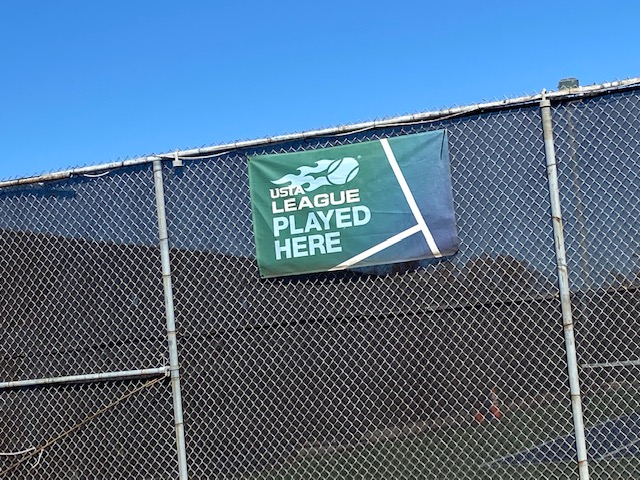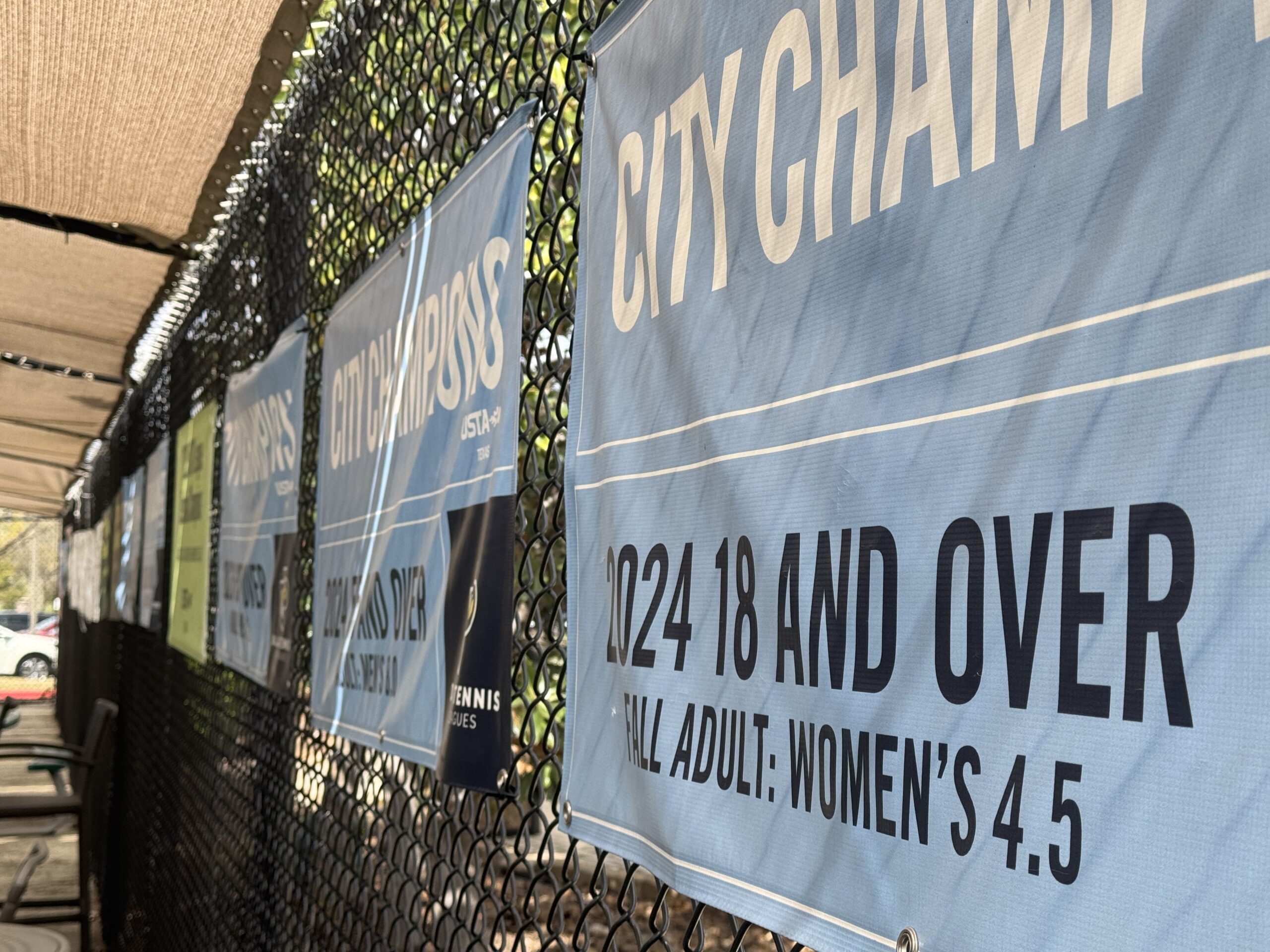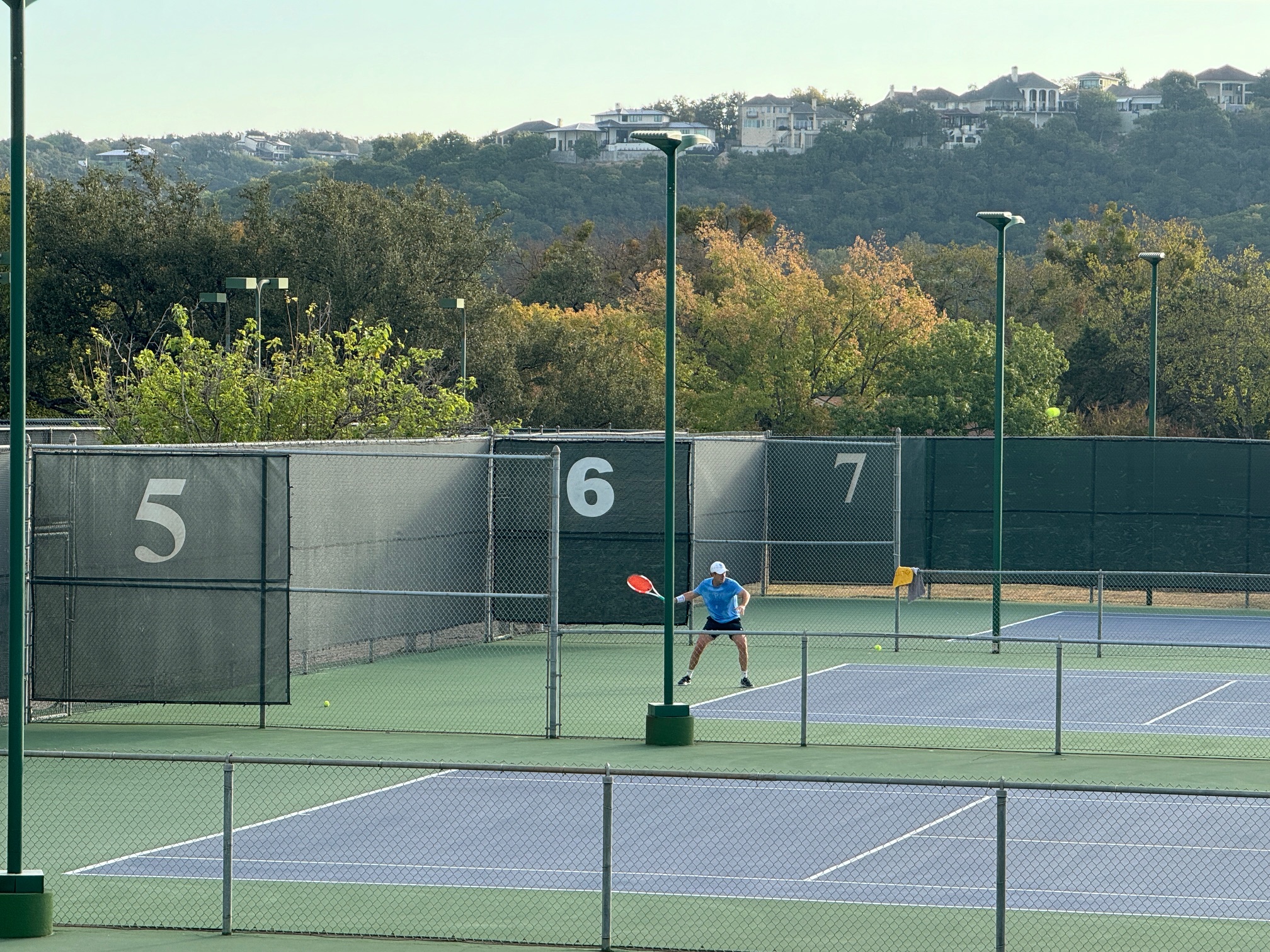Today we celebrate our arrival at the final way to lose a point outlined in “Player Loses Point” in the ITF Rules of Tennis. If you were planning on a celebration to commemorate the completion of this section, please put that on hold. There are still eight case rulings and two USTA comments associated with the “Player Loses Point” section remaining. By my estimate, we are at the approximate half way point for this topic.
The final way a point can be lost per the “Player Loses Point” section in the ITF Rules of Tennis is also the only one that is exclusively applicable to doubles.
The point is lost if:
l. In doubles, both players touch the ball when returning it.
USTA Friend at Court, ITF Rules of Tennis, Section 24
We previously touched (ah… you see what I did there?) on this topic in “How to Lose a Tennis Point: Intentional Catching.” That rule specifies that an individual player cannot intentionally hit the ball more than once. The doubles specific caveat is necessary to make it clear that double strikes of the ball are also prohibited when more than one player is involved.
Unlike singles, in doubles the intention of the players does not matter. So even if both players touch the ball inadvertently, the point is still lost.
I have recently observed little kid tennis lessons where they play a game where teams on each side of the net are permitted multiple strikes of the ball and bounces to deliver the ball to the other side. It is kind of like a golf scramble. There is always copious amounts of laughing and shrieking accompanying this game. It really makes me want to be a little kid and take tennis lessons again for the opportunity to play those games.
Fortunately I come to my senses with a glance over to the older junior tennis lessons when the coach lines up the kids for the short sprint drill known as “running lines.” As God is my witness, I will never run the lines of a tennis court again.
On a related note, it is fairly rare for me to get close enough to my doubles partner to have a double hit occur. That would involve significantly more hustle than uttering “yours.” If my partner is close enough to play the ball… they can have it.
- United States Tennis Association (2020) Friend at Court. White Plains, NY



